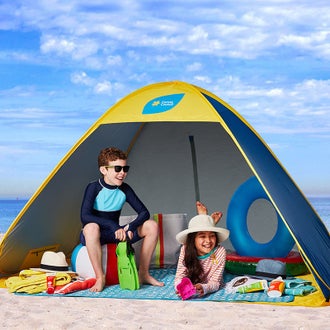I heard that exposure to UV light such as UV lamps, personal solariums and sunlight can protect against coronavirus (COVID-19). Is this true?"
Light in the ultraviolet (UV) radiation spectrum is not recommended as a means of protecting yourself against coronavirus (COVID-19). There is no evidence to show that it will prevent or cure COVID-19.
There are three types of UV radiation in sunlight. UVA, UVB and UVC. UVC is capable of destroying microorganisms but it is generally filtered out by ozone in the atmosphere so doesn’t reach us on the ground. UV light, where the exposure is enough to kill 99.9% of bacteria and viruses is harmful to the skin and to the eyes. Artificially produced UVC in lamps that kill germs are used as a sterilisation method in hospitals and in water systems. This sterilisation method is not effective on dirty, porous or soft furnishings.
Some UVC lights will also generate ozone. When inhaled, ozone can damage the lungs and worsen chronic respiratory diseases.
UV radiation should not be used to sterilise your hands or other areas of the body, as it can cause skin and eye damage.
Solariums emit UVA and UVB radiation, both know causes of cancer. Commercial solariums are banned in Australia and Cancer Council does not recommend the use of personal solariums under any circumstances.
There is no evidence that sunbathing or that the UVA or UVB radiation in sunlight will prevent or cure COVID-19, but there is established evidence that exposure to UV radiation is the main cause of skin cancer. You should continue to follow SunSmart measures when the UV index is 3 or above:
- Slip on protective clothing.
- Slop on SPF 50 or SPF50+, broad-spectrum, water-resistant sunscreen.
- Slap on a broad-brimmed hat
- Seek shade.
- Slide on sunglasses.
To best protect yourself from COVID-19 you should use physical distancing, at least 1.5 metres apart, frequently wash your hands with soap and water for at least 20 seconds or use an alcohol-based hand sanitizer, and avoid touching your nose, mouth and eyes.

